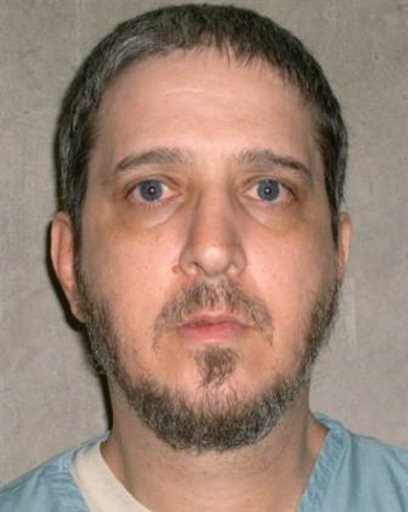McALESTER, Okla. — Oklahoma Gov. Mary Fallin postponed an inmate's scheduled execution Wednesday, saying a drug that the state Department of Corrections had received to carry out a lethal injection didn't match those listed in the agency's protocols.
Fallin said prison officials received potassium acetate for use in Richard Glossip's execution, but Oklahoma's guidelines call for the use of potassium chloride. She reset Glossip's execution for Nov. 6, saying it would give the state enough time to determine whether potassium acetate is a suitable substitute, or to find a supply of potassium chloride.
It's not clear why the error wasn't caught before Wednesday, or announced until an hour after Glossip's scheduled execution.
Part of Wednesday's delay, though, occurred as the Corrections Department waited for the U.S. Supreme Court to weigh in on Glossip's claim of innocence. Justices ultimately rejected his appeal.
Glossip was convicted of ordering the 1997 killing of Barry Van Treese, who owned the Oklahoma City motel that Glossip managed.
Glossip has long said he was framed by hotel handyman Justin Sneed, who admitted to fatally beating Van Treese with a baseball bat, but said he did so only after Glossip promised him $10,000. Sneed — who is serving a life sentence — was the state's key witness against Glossip in two separate trials.
Read Thursday's Arkansas Democrat-Gazette for full details.
